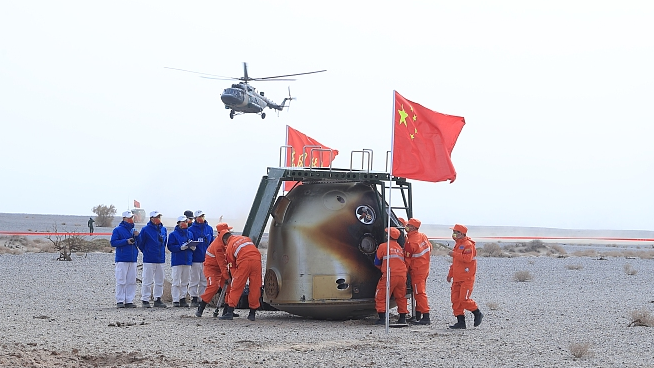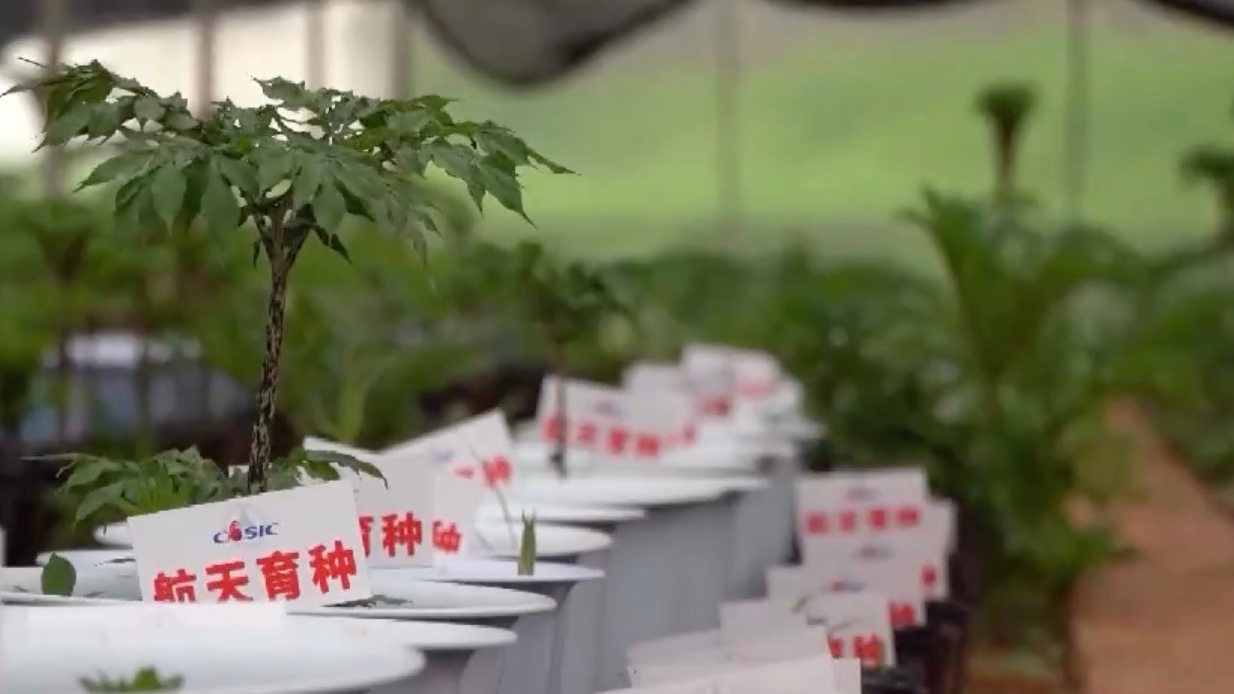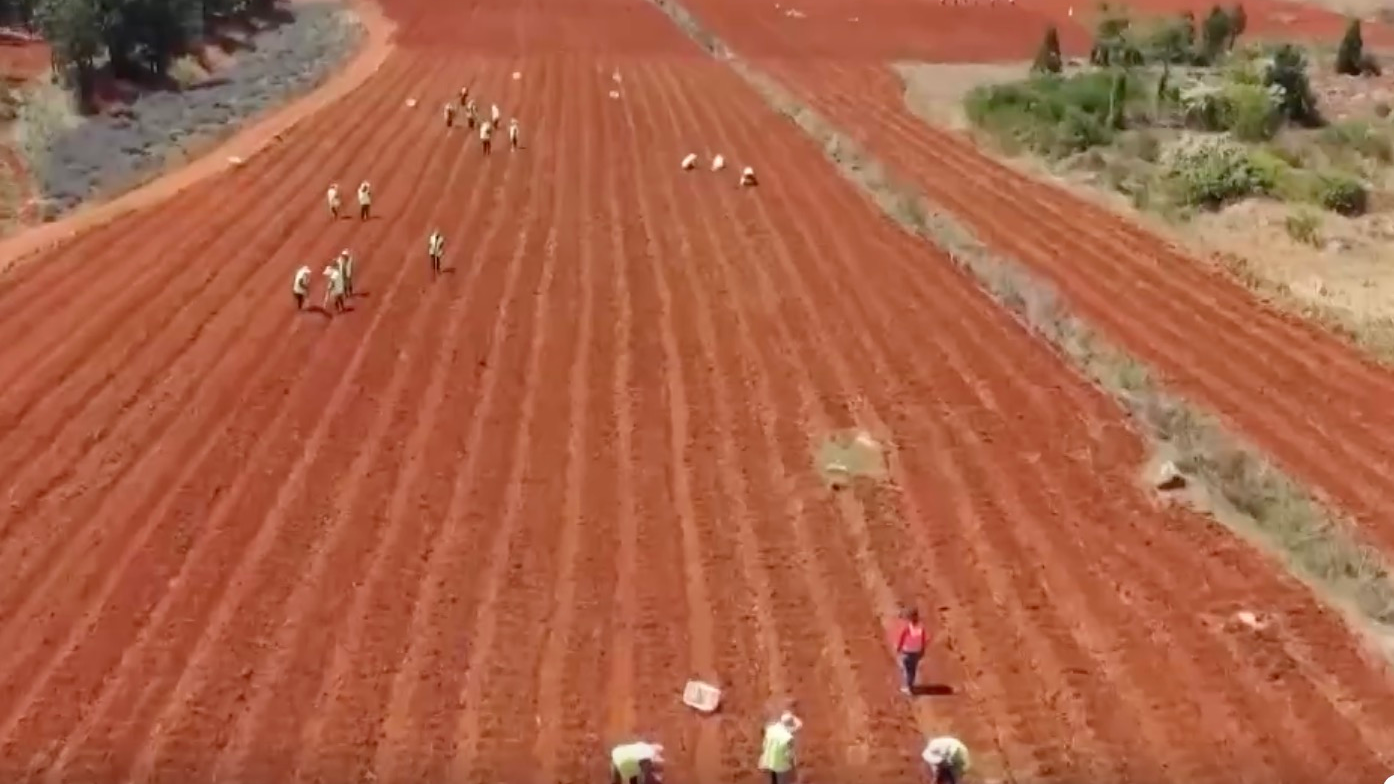
The re-entry module of the Shenzhou-13 manned spacecraft successfully lands at Dongfeng landing site in north China's Inner Mongolia Autonomous Region, April 16, 2022. /CFP
The re-entry module of the Shenzhou-13 manned spacecraft successfully lands at Dongfeng landing site in north China's Inner Mongolia Autonomous Region, April 16, 2022. /CFP
A total of 300 konjac seeds brought back by China's Shenzhou-13 crew from space were handed over to researchers for selective breeding on July 8 at the Fuyuan konjac research institute under Yunnan Academy of Agricultural Sciences in Qujing City of southwest China's Yunnan Province.
Launched from the Jiuquan Satellite Launch Center in northwest China on October 16, 2021, the re-entry module of the Shenzhou-13 manned spacecraft touched down at the Dongfeng landing site in north China's Inner Mongolia Autonomous Region on April 16, 2022.
Space breeding of konjac seeds is a scientific and technological project designated by China Aerospace Science and Industry Corporation (CASIC) to support Qujing City's Fuyuan County, the largest konjac planting base in Yunnan Province, as this batch of 300 konjac seeds, weighing 33 grams, are locally cultivated variety of konjac in Fuyuan.

Konjac seeds brought back by China's Shenzhou-13 crew from space. /CMG
Konjac seeds brought back by China's Shenzhou-13 crew from space. /CMG
The knojac seeds, after being carried to space, have undergone special environmental changes like weightlessness and hypoxia, which can trigger drastic changes in seeds' internal structure.
Researchers expect to solve problems such as seed degradation and serious diseases of konjac seeds through the space-breeding technology.

Space breeding plants at Agricultural Sciences Academy in Fuyuan County of Qujing City of southwest China's Yunnan Province. /CMG
Space breeding plants at Agricultural Sciences Academy in Fuyuan County of Qujing City of southwest China's Yunnan Province. /CMG
Dong Kun, deputy director of the Fuyuan konjac research institute under Yunnan Academy of Agricultural Sciences, told China Media Group (CMG) that "all the seeds brought back by Shenzhou-13 crew this year have been sowed, and we will observe their biological characters in the lab."
We will find seeds with specificity, stability and consistency for the selective breeding as those selected seeds will help better develop konjac planting in Fuyuan, said Dong.

Staff members breed space seeds at Agricultural Sciences Academy in Fuyuan County of Qujing City of southwest China's Yunnan Province. /CMG
Staff members breed space seeds at Agricultural Sciences Academy in Fuyuan County of Qujing City of southwest China's Yunnan Province. /CMG
Fuyuan County has a konjac planting area of nearly 10,000 hectares, with an annual output value reaching almost 1 billion yuan (about $149 million) , and around 10,000 employees in the industry, forming an agricultural business featuring high-quality raw materials and diverse products with interconnected industrial chain.
Read More:
Researchers start breeding 12,000 space seeds returned by Shenzhou-13
Souvenirs from space: Shenzhou-13 return capsule unloaded

